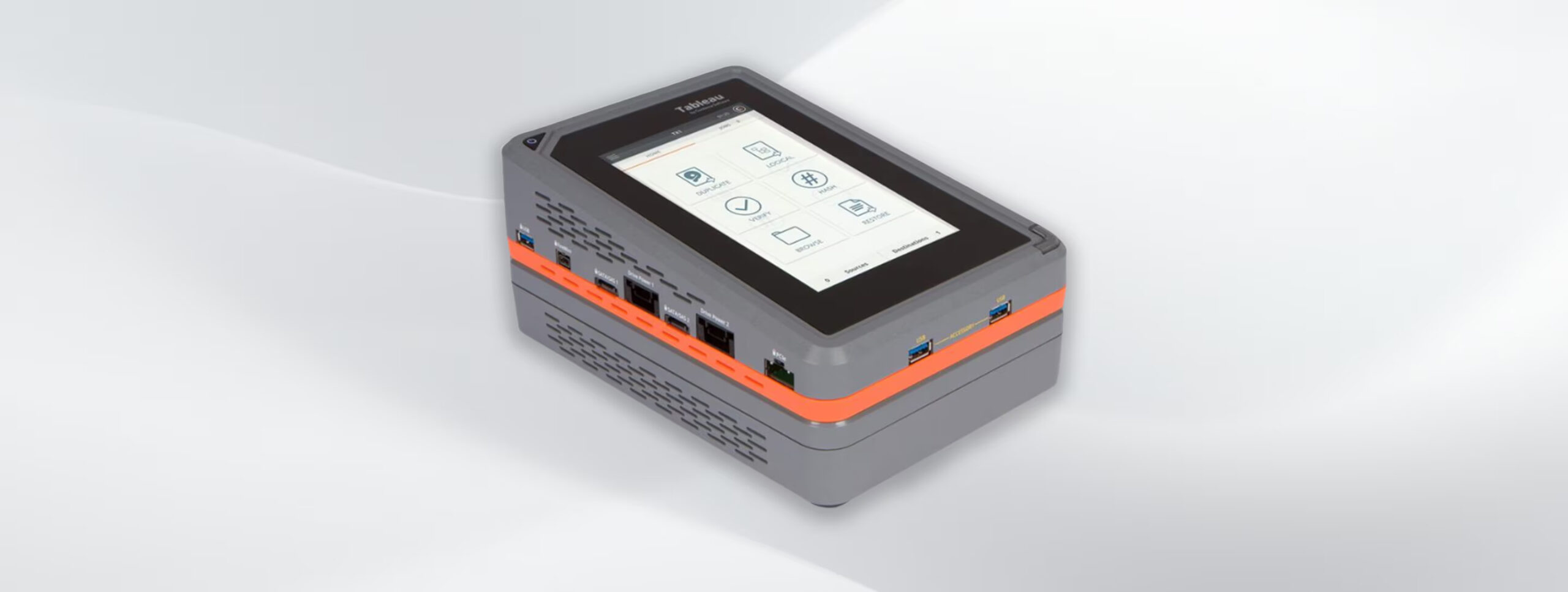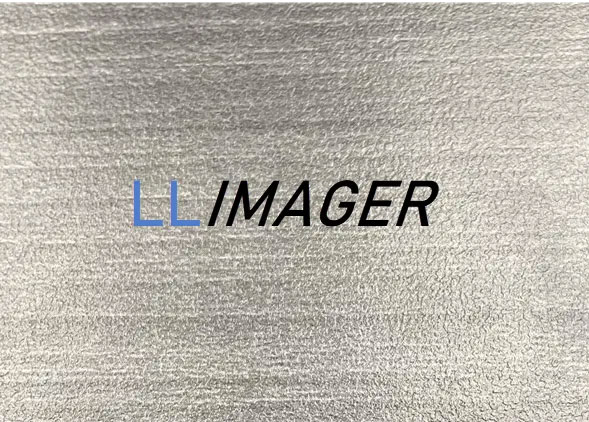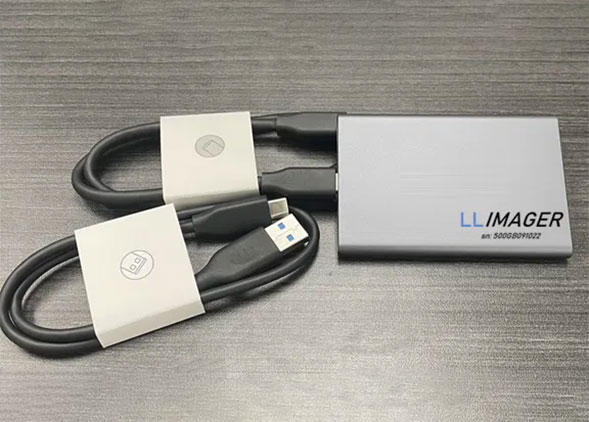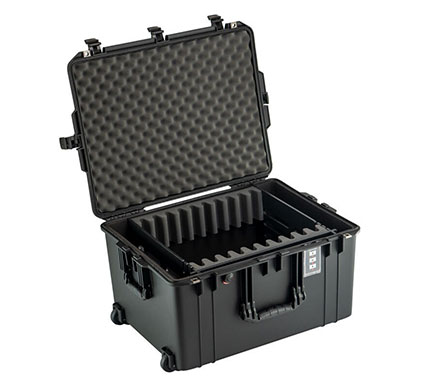
Tableau Forensic TX1 Imager
Support digital investigations with powerful, standalone forensic imaging and triage
OpenText™ Tableau Forensic TX1 Imagers enable law enforcement, government agencies and corporate investigators to acquire forensic imaging data faster and from more media types. Tableau Forensic TX1 Imager’s standalone form factor ensures ease-of-use and portability to collect a forensic image of a suspect device quickly and reliably.
Why choose the Tableau Forensic TX1 Imager?
-
Free firmware updates
Capitalize on new product features and enhancements with free, regular firmware updates for all Tableau Forensic products in an easy-to-use utility.
-
Modern user interface
Minimize training and product-documentation needs with an intuitive touchscreen, easily navigated by even the most junior investigator.
-
Superior forensic integrity
Secure evidence integrity with simultaneous hashing and detailed logs and prevent unintended changes to suspect media with intuitive defaults, preconditions and checks.
-
Court acceptance
Leverage more than 15 years of court acceptance and current recognition as the global leader in forensic hardware data acquisitions.
How the Tableau Forensic TX1 Imager can benefit business
Discover the advantages of using a Tableau Forensic TX1 Imager.
-
Enhance forensic imaging capabilities
Execute triage functions, simultaneous imaging and job queuing in the lab or in the field with multiple output format options.
-
Accelerate investigations
Collaborate on suspect media or monitor operations through remote sessions established between any network-connected TX1 and computer, smartphone or tablet.
-
Bypass encryption
Automatically detect encryption on connected devices and pass through known credentials to unlock APFS, BitLocker and Opal encryptions.
-
Optimize valuable investigative resources
Free up an investigator’s forensic workstation/computer bandwidth with a standalone triage and image verification solution.
Features
-
Broad media support
Forensically images a broad range of network shares, such as 10GbE, and physical media, such as SATA, USB, PCIe, SAS, FireWire and IDE.
-
Multiple destinations per source
Delivers output to four SATA/SAS, one USB 3.0 and one or more network shares with support for up to four destinations per source, combining clone/image duplication and local/network destinations.
-
Simultaneous imaging and job queuing
Supports two concurrent hash creation forensic jobs, including imaging, cloning, standalone hashing and verification. Queues additional jobs to begin upon active job completion, reordering based on prioritization changes.
-
10Gb Ethernet Network Connection
Provides superior network imaging performance. Supports an iSCSI target as a source or destination, a CIFS share as a destination and a NAS solution as a destination for imaging workflow improvements.
-
Local imaging and search
Captures forensically sound, logical images by imaging the entire filesystem, manually selecting specific folders and files or targeting defined search profiles, while offering save and share capabilities across TX1 units.
-
Comprehensive Target Disk Mode capturing
Acquires digital evidence from Mac computers using multiple methods, including over USB-C, FireWire or Thunderbolt and through physical drives configured as one Fusion Drive on iMac® and Mac Mini®.




